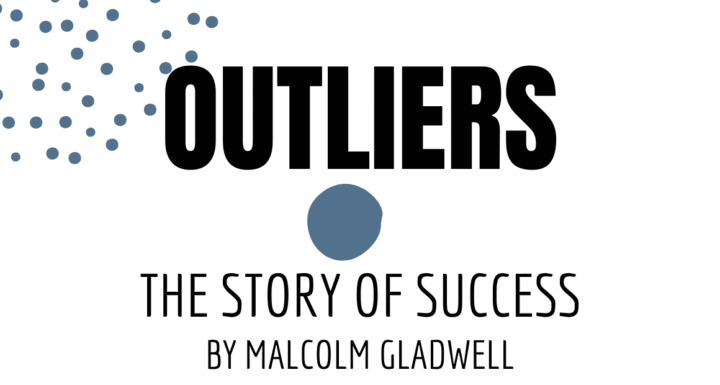Title: Outliers: The Story of Success
Author: Malcolm Gladwell
Publisher: Little, Brown and Company
Genre: Business, Entrepreneurship
First Publication: 2008
Language: English
Book Summary: Outliers: The Story of Success by Malcolm Gladwell
In this stunning book, Malcolm Gladwell takes us on an intellectual journey through the world of “outliers”–the best and the brightest, the most famous and the most successful. He asks the question: what makes high-achievers different?
His answer is that we pay too much attention to what successful people are like, and too little attention to where they are from: that is, their culture, their family, their generation, and the idiosyncratic experiences of their upbringing.
Along the way he explains the secrets of software billionaires, what it takes to be a great soccer player, why Asians are good at math, and what made the Beatles the greatest rock band.

Book Review: Outliers: The Story of Success by Malcolm Gladwell
Outliers: The Story of Success starts off with the famous ‘10,000 hours rule’, which says that no-one ever got really expert at anything without putting in the time and effort, and studies have put the bar at circa 10,000 hours. Innate ability and talent only explain so much, what really counts is the hours and the dedication. Never has any book managed to make me want to practice my hobbies more.
And it only gets better. A lot of chapters start with a big ‘success story’, like the Beatles or Bill Gates. It first tells us the shallow story we all know, and then it throws that version of the story straight to the bin, and shares some insights about what really happened.
“Practice isn’t the thing you do once you’re good. It’s the thing you do that makes you good.”
Outliers: The Story of Success by Malcolm Gladwell shows that the stories about self made rugged individualists who are so widely admired are not stories of singularly talented people who took advantage of opportunities. But rather they are stories of talented people who took advantage of singular opportunities. Furthermore, the ability and disposition to work hard is not so much a personal trait as it is a cultural legacy.
The author tells numerous true stories of what appears to be shining examples of disadvantaged people who ended up being outstanding success stories. But then the author goes back through the same story and takes a look at where that person came from and shows that they benefited from a combination of a cultural background and set of unique opportunities and timing that allowed them to succeed.
“It’s not how much money we make that ultimately makes us happy between nine and five. It’s whether or not our work fulfills us.”
The point of Outliers: The Story of Success is not to explain away success stories. But rather it is to learn from these stories, and use this information to help everyone be more productive and successful. The author shows several instances where proactive steps were able to ameliorate the effect of negative cultural legacies.
Above all, in typical Gladwell style this book is really smoothly written business book and a joy to read. You’ll learn new things, you’ll get some more encouragement to keep practicing at whatever it is you want to achieve professionally or hobby-wise. And it might give you some conversation topics too. Come to think of it – why are the majority of professional hockey players born between January and March?





